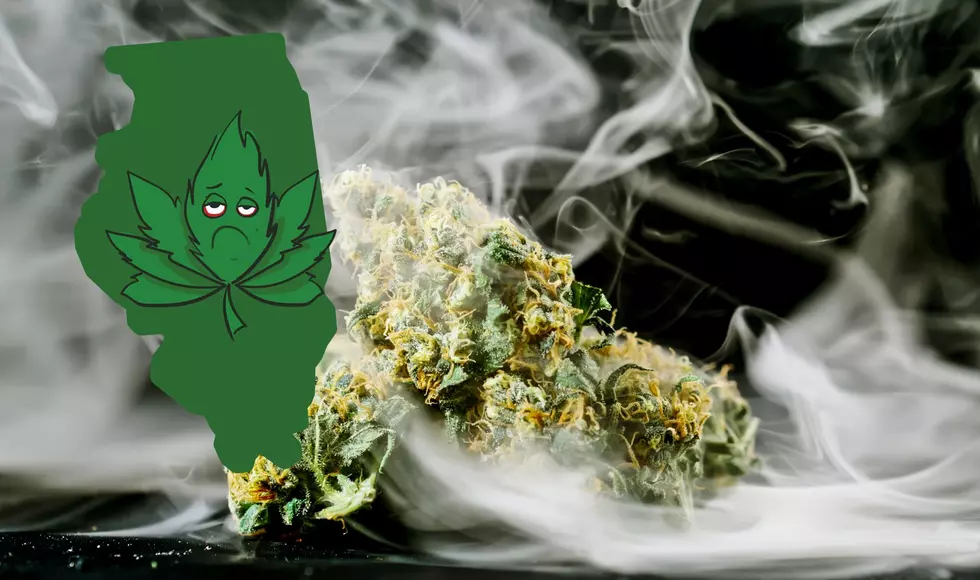
There’s More than 60k Tons of Nuclear Waste On The Great Lakes Shores
The movie Oppenheimer will be out in theaters soon, prompting "nuclear" to be on people's minds again, and Michigan has its own history with it... though, not in bomb form.
In 1963, Michigan opened its first Nuclear power plant - Big Rock Point in Hayes Township, near Charlevoix. The plant was a huge success, and pioneered an era of low emission power generation that would eventually lead to an additional three plants being built in the state.
But with 60 years of nuclear power production, comes 60 years worth of nuclear waste, too. So, what does Michigan do with their nuclear waste, how much do we have, and could it ever endanger our water supplies, or even the Great Lakes?

Nuclear Power in Michigan
When Big Rock opened on March 29, 1963, it was a big deal for Michigan. Until that point, like most other states, we had relied on natural gas, and coal to produce power for the ever-growing Mitten state. But emissions from burning coal were becoming an issue across the country.
Nuclear power took care of that.
Currently, Michigan has three active nuclear power plants that produce 98% emission-free results. The plants provide the state with more than a quarter of it's electrical power.
Michigan has large deposits of natural gas, so it still accounts for the majority of the state's energy consumption, along with coal and gasoline as the only other sources that provide more energy for the state.
But still, nuclear has become a massive part of the equation, and at one time, the state had four functioning plants, with six units.
- Big Rock Point
- Hayes Township, Charlevoix County
- Opened: March 29, 1963
- Decommissioned: August 29, 1997
- Donald C. Cook
- Lake Township, Berrien County
- Unit 1 Opened: August 28, 1975
- Unit 2 Opened: July 1, 1978
- Enrico Fermi Nuclear Generating Station
- Frenchtown Charter Township, Monroe County
- Unit 1 Opened: Aug. 7, 1966
- Unit 2 Opened: January 23, 1988
- Unit 1 Decommissioned: November 29, 1972
- Palisades Nuclear Generating Station
- Covert Township, Van Buren County
- Opened: December 29, 1971
- Decommissioned: May 20, 2022
(Permanent shutdown - being reversed)
So as you can see, today, only two plants remain open with three operation al units for the entire state. But those closed plants aren't just abandoned. They have decades of nuclear waste that they produced. So what happened to it?
Great Lakes Nuclear Waste
Across ALL of the Great Lakes, and a total of 15 plants, more than 60,000 tons of nuclear waste have been produced alongside the massive amounts of power. The spent radioactive fuel rods are gathered, and stored - first in wet pools for cooling, then eventually in dry caskets with constant airflow for continue cooling.
The United States had plans to create a centralized location at Yucca Mountain, Nevada, for ALL nuclear waste at one time, but that plan was scrapped in 1998.
So for now, the waste is mostly stored on the plants property, which in some cases is only YARDS from the shorelines of the Great Lakes.
The good news for Michigan is, we have a VERY small portion of that 60,000 tons of nuclear waste. In fact, the U.S. only has 1/6th of the waste. Nuclear Power in Canada is MUCH more prevalent, and on the Great Lakes alone, they are holding more than 50,000 tons of waste.
But it's still a bit unnerving to know that so much radioactive waste (in some cases) is within walking distance of the largest supply of fresh water in North America.
But technicians and specialists with the nuclear community say the way the spent fuel is stored is entirely safe.
In an interview with the Detroit Free Press, Stephen Tait, who is a spokesman for DTE Energy's Fermi 2 plant, said they take many precautions.
"Our canisters and buildings are able to withstand the impacts of natural disasters, man-made objects, terrorist attacks, wide-bodied commercial aircraft impacts... All of our used fuel is stored, maintained and protected with safety as our top priority."
So is there a risk? Yeah, kinda. It's obviously, potentially a VERY dangerous situation. BUT, in nearly 80 years of nuclear power production in the United States, only one major incident has ever occurred - Three Mile Island.
Oh, and also, this tiny incident in Michigan at the Fermi 1 plant in 1966.
The Time Michigan Almost Experienced A Nuclear Disaster
More From 107.7 WRKR-FM






